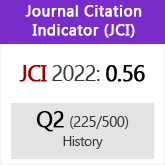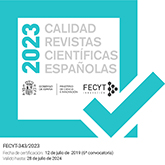Reconstruyendo las narrativas de la memoria en Facebook con métodos digitales
DOI:
https://doi.org/10.3989/chdj.2018.014Palabras clave:
Métodos digitales, Plataformas sociales, Facebook, Guerra Civil EspañolaResumen
Las plataformas sociales juegan un papel cada vez más importante en distintos aspectos de nuestra vida cotidiana, que pueden ir de lo más banal a cuestiones tan cruciales como el proceso de transmisión de significados y valores en nuestra sociedad. Buena parte de su interés radica en el hecho de que la construcción del relato en las redes sociales es un proceso colectivo en el que los usuarios de dichas plataformas participan creando, compartiendo y comentando contenido. Todas estas acciones generan trazas digitales accesibles de manera fácil, no intrusiva y automatizada que suponen una oportunidad sin precedentes para investigar la mediación de fenómenos sociales y culturales. Los Métodos Digitales son una propuesta epistemológica que, alineada con los Estudios en Ciencia, ecnología y Sociedad (CTS), asume la existencia de una mediación tecnológica de las prácticas sociales y culturales y se sirve de técnicas computacionales, tanto para extraer la información relativa a las trazas digitales generadas por los usuarios en las redes sociales, como para analizar y visualizar su contenido. Este artículo toma como caso de estudio la representación de la Guerra Civil española y el Franquismo en Facebook para ejemplificar las potencialidades de dicha aproximación metodológica para investigar sobre los procesos de generación, difusión y representación del conocimiento histórico.
Descargas
Citas
Agre, P. E. (1994) "Surveillance and capture". Information Society, 10 (2), 101-127. https://doi.org/10.1080/01972243.1994.9960162
Bastian, M.; Heymann, S.; Jacomy, M. (2009) "Gephi: an open source software for exploring and manipulating networks". ICWSM (8), 361-362.
Ben-David, A.; Matamoros-Fernandez, A. (2016) "Hate speech and covert discrimination on social media: Monitoring Facebook pages of extreme-right political parties in Spain". International Journal of Communication (10), 1167-1193.
Blondel, V. D.; Guillaume, J.; Lambiotte, R.; Lefebvre, E. (2008) "Fast unfolding of communities in networks". Journal of statiscal mechanics: theory and experiment, 2008, 10. https://doi.org/10.1088/1742-5468/2008/10/P10008
Boyd, D.; Crawford, K. (2011) "Six provocations for Big Data". A decade in Internet tiem: symposium on the dynamics of the Internet and society. Rochester: Social Science Research Network.
Coromina, Òscar (2017) "Pugna por el relato en los contenciosos políticos. El caso del proceso participativo del 9N de 2014". El profesional de la información , 26 (5): 884-893. https://doi.org/10.3145/epi.2017.sep.10
Ellison, N. B.; Vitak, J.; Gray, R. and Lampe, C. (2014). "Cultivating social resources on social networking sites: Facebook relationship maintenance behaviors and their role in social capital processes". Journal of Computer-Mediated Communication , 19 (4), 855-870. https://doi.org/10.1111/jcc4.12078
Ellison, N.; Boyd, D. (2013) "Sociality through social network sites. In W. H. Dunton". The Oxford Handbook of Internet Studies (151-172). Oxford: Oxford University Press.
Facebook Inc. (2017). Facebook Newsroom. Retrieved 10/November/2017 from Facebook: https://es.newsroom.fb.com/company-info/
Facebook Inc. (2017). Anuncios de Facebook. Retrieved 29/november/2017 from Facebook para empresas: https://www.facebook.com/business/products/ads
Fernández Pe-a, E.; Coromina, Ò.; Gila, J. M. (2017) "Nature of engagement on Facebook during London 2012 olympic games: insight inot public participation in terms of language and gender". South African Journal for Research in Sport, Physical Education and Recreation , 39 (1:2): 135-151.
Gerlitz, C.; Helmond, A. (2013) "The like economy: social buttons and the data-intensive web". New media & society , 15, 1349-1365. https://doi.org/10.1177/1461444812472322
Giglietto, F.; Rossi, L.; Bennato, D. (2012). "The open laboratory: limits and possibilities of using Facebook, Twitter, and Youtubue as a Research Data Source". Journal of technology in human services , 30 (3-4), 145-149. https://doi.org/10.1080/15228835.2012.743797
Hille, S.; Bakker, P. (2014) "Engaging the social news use". Journalism Practice, 8 (5): 563-572. https://doi.org/10.1080/17512786.2014.899758
Jacomy, M.; Heymann, S.; Venturini, T.; Bastian, M. (2011). "Forceatlas2, a continous graph layout algorithm for handy network visualization". Medialab center of Research , 560.
Jenkins, Henry. (2006). Convergence Culture. New York: New York University Press.
Kaplan, Andreas M.; Haenlein, M. (2010) "Users of the world unite! The challenges and oportunities of Social Media". Business horizons , 53.1, 59-68. https://doi.org/10.1016/j.bushor.2009.09.003
Kim, W.; Jeong, O. R.; Lee, S. W. (2010). "On social web sites" Information Systesm , 35 (2).
Langlois, G.; Elmer. G. (2013). "The research politics of social media platforms". Culture Machine, 14.
Latour, Bruno (2007) "Beware, your imagination leaves digital traces". Times Higher Literary Supplement , 6.4.
Latour, Bruno. (2010). "Tarde's idea of quantification". In M. Candea, The social after Gabriel Tarde: debates and assessments (pp. 145-162). New York: Routledge.
Latour, B.; Jensen, P.; Venturini, T.; Grauwin, S.; Boulier, D. (2012). "The whole is always smaller than its parts". British Journal of sociology , 590-615. https://doi.org/10.1111/j.1468-4446.2012.01428.x PMid:23240834
Lazer, D.; Pentland, A.; Adamic, L.; Sinan, A.; Laszlo, A.; Brewer, D.; Christakis, N.; Contractor, N.; Fowler, J.; Gutmann, M.; Jebara, T.; King, G.; Macy, M.; Roy, D.; Van Alstyne, M. (2009) "life in the network: the coming age of computational social science". In Science 323(5915): 721–723. https://doi.org/10.1126/science.1167742 PMid:19197046 PMCid:PMC2745217
Lenhart, Amanda (2009) Adults and social network sites. Pew Research Center. PMCid:PMC5581936
Manovich, L. (2011) "Trending: the promises and the challenges of big social data". In M. K. Gold, Debates in digital humanities (pp. 460-475). Minneapolis: The university of Minnesota Press.
Marres, N. (2012) "The redistribution of methods: on intervention in digital social research, broadly conceived". The sociological review , 60:S1, 139-165. https://doi.org/10.1111/j.1467-954X.2012.02121.x
Marres, N.; Weltevrede, E. (2013) "Scraping the social? issues in live social research". Journal of cultural economy , 6 (3), 313-335. https://doi.org/10.1080/17530350.2013.772070
McQuail, Denis (1994). Mass comunication theory: An introduction. Sage Publications. PMid:7848492
Meraz, S.; Papacharissi, Z. (2013) "Networked Gatekeeping and Networked Framing on #Egypt". The International Journal of Press/Politics , XX (X), 1-29. https://doi.org/10.1177/1940161212474472
Mollen, A.; Wilson, H. (2010)" "Engagement, telepresence and interactivity in online consumer experience: Reconciling scholastic and managerial perspectives". Journal of business research, 63(9), 919-925. https://doi.org/10.1016/j.jbusres.2009.05.014
Musial, K.; Kazienko, P. (2012) "Social networks on the Internet"- World Wide Web 16, 16 (1), 31-72. https://doi.org/10.1007/s11280-011-0155-z
Netvizz (2017). Amsterdam: Digital Methods Initiative, Bernhard Rieder.
Papacharissi, Zizi. (2015). Affective Publics. New York: Oxfort Universtiy Press.
Poell, T.; Abdulla, R.; Rieder, B.; Woltering, R.; Zack, L. (2015). "Protest leadership in the age of social media". In Information, Communication & Society, 19 (7): 994-1014. https://doi.org/10.1080/1369118X.2015.1088049
Puschmann, C.; Burgess, J. (2013) "The Politics of Twitter Data". In K. Weller; A. Bruns; J. Burguess; M. Mahrt; C. Puschmann, Twitter and Society (pp. 43-54). New York: Peter Lang Publishers. https://doi.org/10.2139/ssrn.2206225
Rader, E.; Gray, R. (2015) "Understanding user beliefs about algorithmic curation in the facebook news feed". In Proceedings of the 33rd Annual ACM Conference on Human Factors in Computing Systems (173-182). Seoul: ACM. https://doi.org/10.1145/2702123.2702174
Rains, S. A.; Brunner, S. R. (2015) "What can we learn about social networking sites by Studying Facebook? A call and recommendations for research on social network sites". New Media & Society, 17 (1), 114-131. https://doi.org/10.1177/1461444814546481
Rieder, Bernhard. (2013) "Studying Facebook via data extraction: the Netvizz Application". Proceeding of the 5th Annual ACM Web Science Conference (pp. 346-355). ACM. https://doi.org/10.1145/2464464.2464475
Rogers, Richard (2013). Digital Methods. Cambridge, Massachusetts: MIT Press. https://doi.org/10.7551/mitpress/8718.001.0001
Stewart, Rebecca. (28 de february de 2017). Facebook tweaks its algorithm to give more prominence to posts with "reactions". Retrieved 18 de november de 2017 from Business Insider: http://www.businessinsider.com/facebook-tweaks-algorithmto-give-more-value-to-posts-with-reactions-2017-2
Thelwall, Mike (2009). "Social network sites: Users and uses". In M. (. Zelkowitz, Advances in Computers (pp. 19-73). Amsterdam: Elsevier. PMCid:PMC3188415
Van Dijck, Jose. (2013). "'You have on identity': performing the self on Facebook and Linkedin". Media, Culture & Society , 35 (2), 199-215. https://doi.org/10.1177/0163443712468605
Publicado
Cómo citar
Número
Sección
Licencia
Derechos de autor 2019 Consejo Superior de Investigaciones Científicas (CSIC)

Esta obra está bajo una licencia internacional Creative Commons Atribución 4.0.
© CSIC. Los originales publicados en las ediciones impresa y electrónica de esta Revista son propiedad del Consejo Superior de Investigaciones Científicas, siendo necesario citar la procedencia en cualquier reproducción parcial o total.Salvo indicación contraria, todos los contenidos de la edición electrónica se distribuyen bajo una licencia de uso y distribución “Creative Commons Reconocimiento 4.0 Internacional ” (CC BY 4.0). Puede consultar desde aquí la versión informativa y el texto legal de la licencia. Esta circunstancia ha de hacerse constar expresamente de esta forma cuando sea necesario.
No se autoriza el depósito en repositorios, páginas web personales o similares de cualquier otra versión distinta a la publicada por el editor.

















